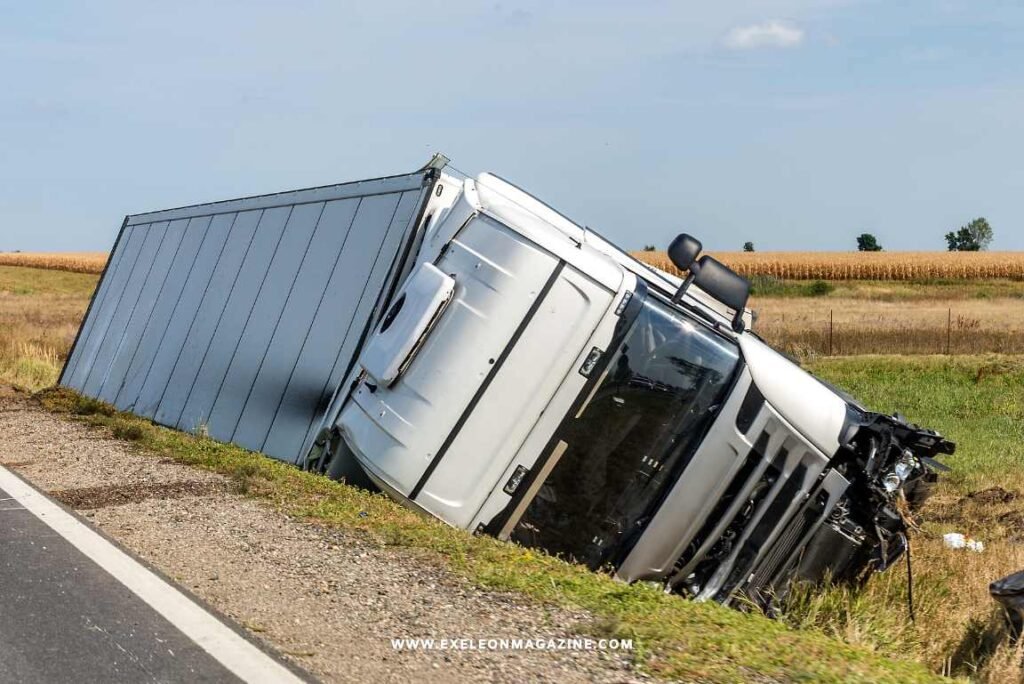Truck accidents can result in severe consequences due to the sheer size and weight of commercial trucks. When these accidents occur, determining liability is crucial for ensuring that victims receive appropriate compensation. Various parties, including the truck driver, trucking company, and vehicle manufacturers, can be held liable. A St Louis truck accident lawyer says understanding liability dynamics in truck accidents is essential for navigating legal and insurance claims effectively.
The Role Of The Truck Driver
The truck driver is often the first party examined when determining liability in a truck accident. Drivers are legally obligated to operate their vehicles safely and adhere to all traffic laws and regulations. Common causes of truck driver negligence include distracted driving, fatigue, driving under the influence of drugs or alcohol, speeding, and failure to follow traffic signals. For instance, if a driver was texting while driving or was found to have exceeded the hours of service regulations mandated by the Federal Motor Carrier Safety Administration (FMCSA), they could be held liable for the accident.
Additionally, drivers must maintain proper records of their driving hours, vehicle inspections, and rest breaks. Failure to keep accurate logs or falsifying information can further implicate the driver in case of an accident. Therefore, thorough investigation and evidence collection are critical in assessing the driver’s role in the incident.
Liability Of The Trucking Company
Trucking companies can also be held liable for accidents involving their vehicles. Companies are responsible for ensuring their drivers are properly trained, qualified, and fit for duty. They must conduct thorough background checks and regular evaluations to prevent unqualified drivers from operating commercial trucks. If a company fails to perform these duties, it can be deemed negligent.
Moreover, trucking companies are responsible for maintaining their fleet of vehicles. This includes regular inspections, repairs, and ensuring that trucks meet safety standards. The company can be held accountable if a company’s lack of maintenance leads to an accident, such as brake failure or tire blowout.
Trucking companies may also face liability under the principle of “vicarious liability,” which holds employers accountable for the actions of their employees performed within the scope of their employment. For example, suppose a driver causes an accident while making a delivery. In that case, the company might be held liable because the driver was performing job-related duties at the time of the crash.
Manufacturer And Maintenance-Related Liability
Vehicle manufacturers can be held liable if a defect in the truck or its components contributed to the accident. This type of liability falls under product liability law, which holds manufacturers, distributors, and sellers responsible for releasing defective or dangerous products. Common defects that can lead to truck accidents include faulty brakes, steering mechanisms, tires, and engine parts.
To establish manufacturer liability, it must be proven that the defect existed when the truck left the manufacturer’s control and that the defect directly caused or contributed to the accident. In some cases, independent repair shops or maintenance providers can also be held liable if poor workmanship or substandard repairs lead to the malfunction of a truck component.
Third-Party Liability
In addition to the primary parties mentioned, other third parties can also be held liable for truck accidents. For example, cargo loaders are responsible for ensuring that freight is properly loaded and secured. Improper loading can cause the cargo to shift during transit, leading to truck instability and accidents. If improper loading is identified as a cause, the loading company or individual responsible may be held liable.
Additionally, road construction companies and government entities can be held accountable if poor road conditions or inadequate signage contribute to an accident. For instance, if a construction zone lacks proper warnings or barriers, leading to a truck accident, the entity responsible for the roadwork may bear some liability.
Shared Liability And Comparative Negligence
In many truck accident cases, more than one party may be found liable. When multiple parties share responsibility, liability is distributed based on the degree of fault. This concept is known as comparative negligence. For example, if the truck driver and the trucking company are partially responsible for the accident, the court will determine the percentage of fault attributed to each party.
Some states follow a modified comparative negligence rule, which allows a plaintiff to recover damages only if their degree of fault does not exceed a certain threshold, typically 50%. If the plaintiff’s fault exceeds this limit, they may be barred from recovering any damages.
Conclusion
Understanding liability in truck accidents is complex and often involves multiple parties. Assessing the roles of the truck driver, trucking company, vehicle manufacturers, and other third parties is essential for determining fault and securing rightful compensation. The St Louis truck accident lawyer recommends that victims meticulously investigate each aspect of the accident to better navigate the legal landscape and hold the appropriate parties accountable.
You May Also Like:










